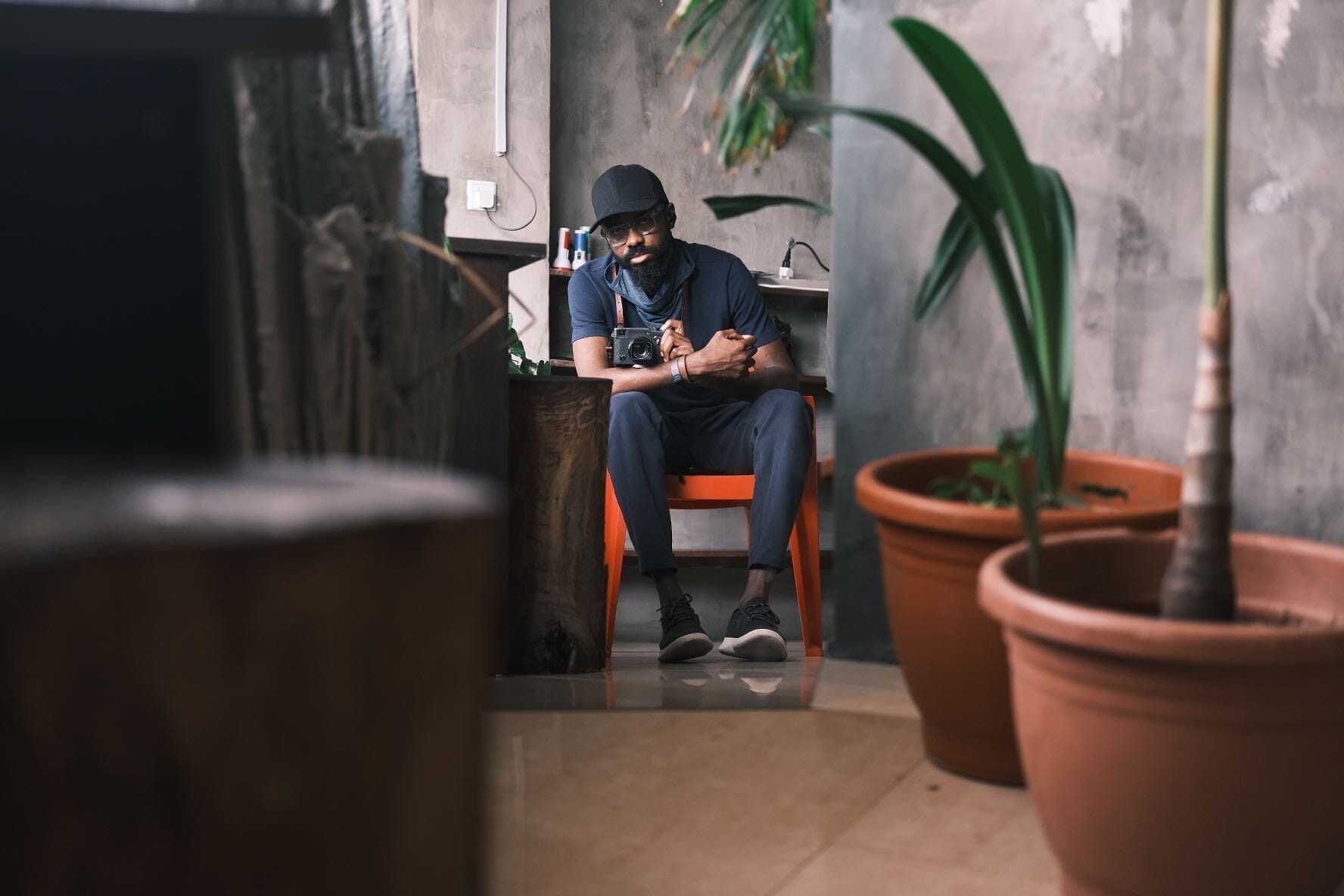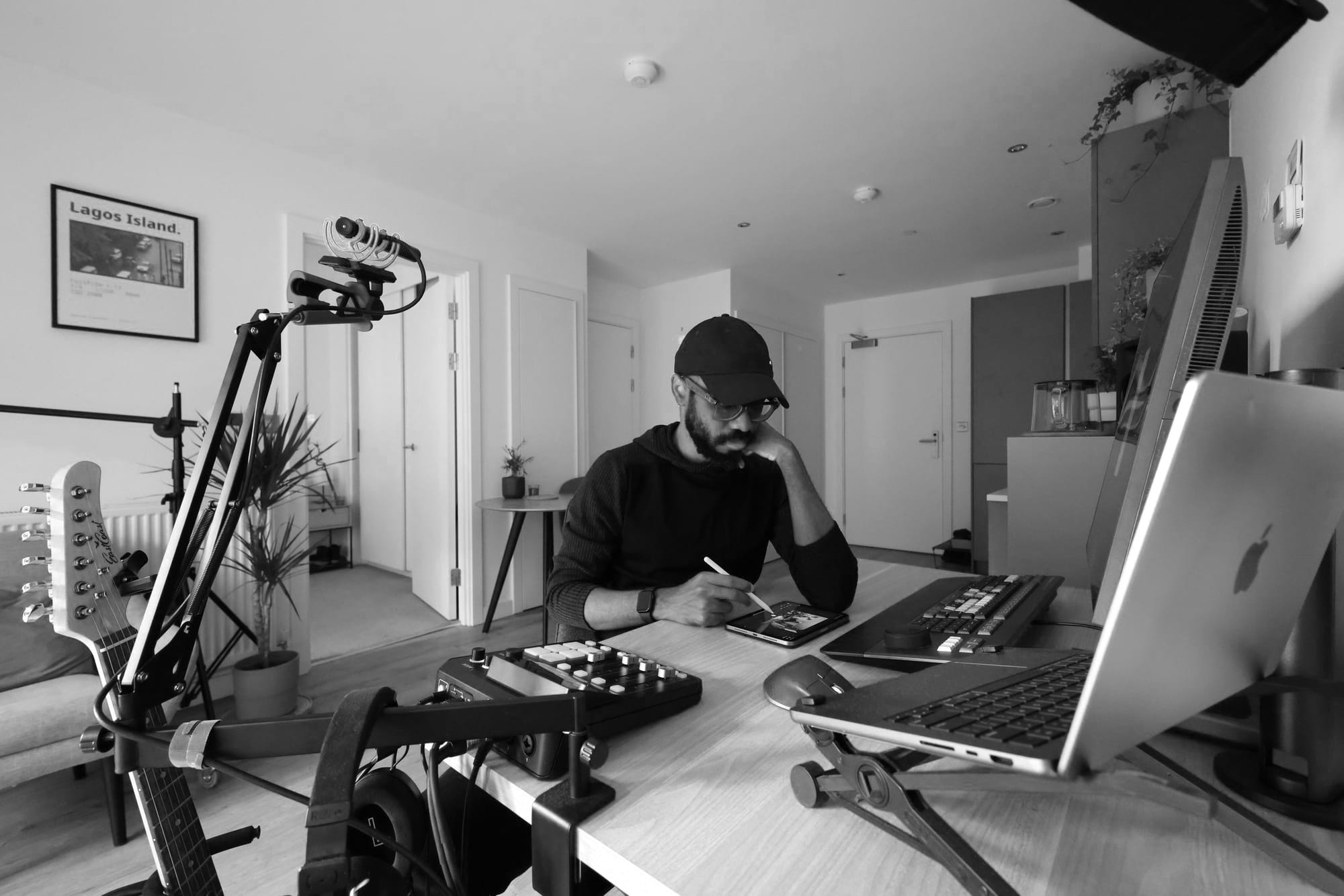OP-ED - Edge of the matrix: Bankole Oluwafemi on levelling up in a world of unequal passport access
For Nigerians, global mobility isn't just travel—it's a game rigged at birth. "Full-stack creative" and TechCabal founder Bankole Oluwafemi reveals how to hack the system and rewrite your sovereignty stats.

On March 20, 2025, Nigerian travel content creator Alma Asinobi set out to break the Guinness World Record for the fastest journey across the world's seven continents. Apparently, the current record of 64 hours is held by Johnny Cruz Buckingham of the U.S., set in February 2025.
Asinobi's journey began on King George Island, Antarctica, taking her through Chile, the Dominican Republic, Spain, Egypt, and Dubai. Her record-breaking ambitions were ultimately dashed by the obstacles that come with travelling while Nigerian on a Naija passport—including being denied boarding a flight to Perth, which delayed her arrival in Sydney, Australia on March 23rd. Total travel time: 71 hours and 35 minutes.
Although she failed to break Buckingham's record, Asinobi's journey has ignited fresh conversations about passport inequality and travel restrictions faced by citizens of developing nations.
It's a reality even Africa's wealthiest person, Aliko Dangote, has publicly acknowledged.
During a 2023 Africa CEO Forum fireside conversation with CNN's Larry Madowo in Kigali, Dangote revealed that despite his high-net-worth individual (HNWI) status, his Nigerian passport subjects him to the inconvenience of making dozens of visa applications annually—just to move around the continent, let alone the rest of the world. He pointed out that, HNWI privileges notwithstanding, he enjoys considerably less freedom of movement than an everyday Western passport holder.
Which brings me to this week's Tech Tides Africa column hijacker, Bankole 'Lord Banks' Oluwafemi.
Meet Bankole Oluwafemi
I first encountered Bankole Oluwafemi's work back in 2013 when TechCabal was still finding its feet as one of the first dedicated African tech publications. Long before the current wave of "Africa rising" tech narratives became fashionable, he was documenting Nigeria's nascent startup ecosystem from cramped co-working spaces in Lagos, often navigating through the city's notorious traffic to chase stories with nothing but a notepad, curiosity and an unwavering belief that African tech deserved serious coverage.

What struck me most during our recent chat was Oluwafemi's reflection on how he built TechCabal through what he calls "just figuring it out"—an approach that embodied the very ethos of the startups he was covering. "We were just winging it, man," he told me with that characteristic rueful laugh that punctuates his serious insights. "There was no blueprint for building a tech publication in Nigeria at that time."
Though his LinkedIn bio modestly describes him as a "full-stack creative and builder of over-engineered Zoom setups" who "helped create TechCabal and Zikoko," the reality is more consequential. Oluwafemi didn't just help create these platforms—he founded them and pioneered a new form of tech journalism in Africa that set the stage for much of the ecosystem coverage we now take for granted.
Now working on Nigerianisms (2026), a book exploring Nigerian culture through the lens of Afrobeats and Nollywood, Oluwafemi brings us his thoughts on something deeply personal: the concept of a "sovereignty stack" and what it means to navigate the world with a Nigerian passport.
Having spent years as a self-described "homeless" digital nomad between 2019 and 2023, constantly seeking ways to "opt out" of systems that felt constraining, he has thought deeply about global mobility and digital access. Now based in Manchester, UK, which he currently calls home, Lord Banks offers us his perspective on navigating a world of unequal passport access.
Here's what's on Oluwafemi's mind, in his words:
There's a scene in The Matrix where Morpheus tells Neo that the world he thinks he knows is an illusion, a construct designed to keep him in place. That moment resonates with me because, for many people, the world really does work that way—especially if you were born with the "wrong" passport.
For as long as I can remember, I've wanted to see the world. Growing up in Nigeria, my first window into the wider world wasn't a passport, a plane ticket, or even a map. It was books. A lot of Enid Blyton. And then television—cartoons on NTA 2 Channel 5.
But getting to watch TV wasn't a given. First, there had to be power, which was never guaranteed. Then, the TV station had to be transmitting.
If both conditions aligned, I'd get my two-hour ticket out of Lagos, stepping through the CRT screen into the worlds of Sesame Street, Magic School Bus, Spider-Man, Dora The Explorer, Teddy Ruxpin, The Little Prince…and of course, Enid Blyton's The Famous Five, adapted for TV. The list is actually much longer, and it's what I blame for my weird, not-quite Nigerian, not-quite American accent. By the time I finally set foot in the U.S., my first ever trip abroad, at the ripe old age of 27, it felt like I had already been there.
Yet, there was a fundamental difference between me and the kids whose lives I had lived vicariously through those screens: for them, the world was open. For me, a Nigerian passport holder, it was not, because sometime in the 1980s, the Nigerian passport's travel access began to decline.
Matrix margin
In The Matrix, some people could defy physics and walk vertically up walls. In real life, international borders are semi-permeable barriers that some people can walk through, and others cannot, based on specific legal attributes.
If you've ever tried to open a business bank account and been blocked because of your nationality, or struggled to get a visa to attend an industry conference that could change your career, congratulations—you've discovered the edge of the matrix. Except, of course, the edge is different for everyone, depending on their sovereignty stack.
The Sovereignty Stack
A sovereignty stack is the set of attributes that determines whether a person can interact with the physical and virtual world—what they can and cannot do, where they can and cannot go. Citizenship is a critical component, but there are other attributes like visas, residence permits, corporate vehicles, bank accounts, and dual citizenship that create interesting second and third effects.
International travel is typically the first place Nigerians encounter the edge of the matrix. One time, I was on a group trip with other African nationals where I had to turn back at country 3 of 5 because of "unique" visa access problems. But in a world flattened by technology and instant communication, these edges become apparent even quicker than ever before.
I first encountered the edge years before I boarded a plane, nearly fifteen years ago when I tried to open a PayPal account to become a freelancer on the Envato marketplace. I was enthusiastically learning PHP to develop and sell WordPress themes. Opening a PayPal account from Nigeria was impossible, and to even buy a theme from Envato, I had to pay a third party in Nigeria who had access to PayPal to make the transaction on my behalf.
Of course this roundabout workaround would not work if I was aiming to become a vendor myself. After months of research and frustration, I abandoned that enterprise. But I've never stopped thinking about what could have been if I could expand my ability to interact effectively with the global economy. That's where the premise of upgrading one's sovereignty stack begins.
Global citizenship game
Think of it like a role-playing game. When you start, your character has default stats: strength, agility, intelligence. As you progress, you acquire stat boosts—new weapons, armour, skills—that make you more powerful.
In real life, those "stat boosts" come in the form of second passports, business residencies, international bank accounts, global work structures, and professional certifications that unlock access to new opportunities.
Anyone from the "wrong" area code who aspires to build a global business or career will eventually encounter critical speed bumps. If you're an entrepreneur from a country with capital controls, how do you raise money from international investors? If you're a skilled professional, how do you ensure you're earning at a global rate, not a local discount?
Of course most people don't think about these things in these terms. When they hit the edge of the matrix, the invisible ceiling defined by their current sovereignty stats, they either figure it out intuitively, or they quit.
This is the essence of the book I'm writing with my friend, Adim. We're not inventing anything new—people have been doing this intuitively for centuries. If you're reading this, there's a good chance you already do quite a bit as well. What we're doing is articulating and distilling our thoughts and experiences from our journey as global citizens into a coherent framework that anyone can access and operationalise.

By optimising your sovereignty stack, you gain access to expanded possibilities. You can increase your global mobility by obtaining residencies or visas that have second-order effects. You unlock financial infrastructure by setting up banking and payment systems that allow you to operate internationally, freeing yourself from local constraints.
When you incorporate strategically, you can register businesses in jurisdictions that actively support fundraising and expansion, giving your ventures the strongest possible foundation. Perhaps most importantly, you position yourself to work and get paid at global rates by structuring your employment or freelance work to avoid unnecessary local restrictions, ensuring your talent and services are valued at their true worth.
Optimising your sovereignty stack isn't about abandoning your home country. It's about increasing options, access, and leverage, regardless of where you choose to settle.
Red pill option
Where we are born is not up to us, and our birthplace comes with default stats. But just as you probably wouldn't try to complete a game like Elden Ring with your starting character's default abilities, it makes sense to pursue a deliberate strategy for improving your hand in the game of life.
Most people will never need to bother with this concept. Some of them already won the citizenship lottery at birth, and have other things to worry about. Others will lead typical lives within the constraints of their birth circumstances. And that's fine.
But if you've ever felt like you've hit an invisible ceiling—in business, mobility, or financial access—then this is the red pill. You don't have to accept the default stats and settings. You don't have to be stuck playing by rules that exclude you. You can reconfigure your build. You can level up.
That's what The Sovereignty Stack thesis is all about—articulating a blueprint for breaking past the edge of the matrix and unlocking your full potential. It's a work and journey in progress. You can join us at www.sovereigntystack.co
Editorial Note: A version of this opinion editorial was first published by Business Report on 25 March 2025.

